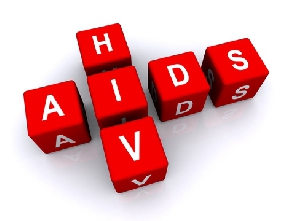Coronavirus could result in more HIV infections and AIDS-related deaths for next 2 years - UN report
 The rapid spread of the coronavirus has created additional setbacks
The rapid spread of the coronavirus has created additional setbacks
The latest report from the joint United Nations Program on HIV/AIDS (UNAIDS) has warned that the ongoing COVID-19 pandemic could result in 123,000 to 293,000 new HIV infections and 69,000 to 148,000 additional AIDS-related deaths between 2020 and 2022.
In a report titled "Prevailing against pandemics by putting people at the center" which was published on Nov. 26, UNAIDS has warned that the global AIDS response was off track even before COVID-19.
It used to set the triple 90s targets years ago, including that by 2020, 90 percent of people living with HIV know their HIV status, 90 per cent who know their status are receiving treatment, and 90 per cent on HIV treatment have a suppressed viral load.
However, the rapid spread of the coronavirus has created additional setbacks.
For the world to be back on track to ending AIDS by 2030, as part of the UN Sustainable Development Goals (UNSDGs), UNAIDS called on countries to make far greater investments in global pandemic responses and adopt a new set of bold, ambitious but achievable HIV targets.
"The collective failure to invest sufficiently in comprehensive, rights-based, people-centred HIV responses has come at a terrible price," UNAIDS Executive Director Winnie Byanyima has said in a press release.
"Implementing just the most politically palatable programs will not turn the tide against COVID-19 or end AIDS. To get the global response back on track will require putting people first and tackling the inequalities on which epidemics thrive."
UNAIDS has since proposed a new set of targets for 2025 that, if achieved, will make the UNSDGs of ending the AIDS epidemic by 2030 possible.
Those include achieving a number of 95-percents by 2025, such as 95 percent of women of reproductive age have HIV, sexual and reproductive health service needs met; 95 percent of pregnant and breastfeeding women living with HIV have suppressed viral loads; 95 percent of HIV-exposed children are tested; and 95 percent of people at risk of HIV infection use appropriate, prioritized, person-centred and effective combination prevention options.
The 2025 targets also include ambitious anti-discrimination goals, such as that less than ten per cent of countries have punitive laws and policies, that less than ten per cent of people living with and affected by HIV experience stigma and discrimination, and that less than ten percent experience gender inequality and violence.
Faced with the continued COVID-19 pandemic, the UNAIDS chief has reiterated her call for global solidarity and for the world to learn from mistakes of the HIV response.
"No country can defeat these pandemics on its own. A challenge of this magnitude can only be defeated by forging global solidarity, accepting a shared responsibility and mobilizing a response that leaves no one behind. We can do this by sharing the load and working together."
According to UNAIDS, 2019 already recorded 1.7 million new HIV infections and 690,000 deaths from AIDS-related illnesses. Globally, 38 million people are living with HIV, with more than 12 million people waiting for life-saving HIV treatment.
- Commonwealth countries must create 5,000 jobs everyday till 2030 - Foreign Affairs Minister
- Use COVID-19 fund to strengthen health care, immunization financing — HFFG
- Parliament records a new case of coronavirus
- Breach of coronavirus safety protocols: GMA calls for action
- Chadians line up for Sinopharm as coronavirus vaccination campaign begins
- Read all related articles












